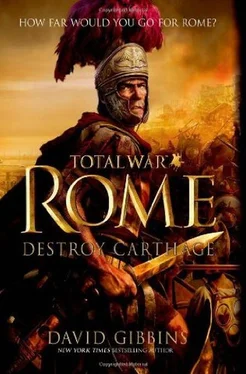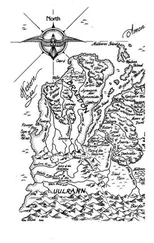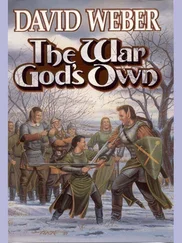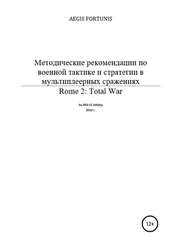David Gibbins - Total War Rome - Destroy Carthage
Здесь есть возможность читать онлайн «David Gibbins - Total War Rome - Destroy Carthage» весь текст электронной книги совершенно бесплатно (целиком полную версию без сокращений). В некоторых случаях можно слушать аудио, скачать через торрент в формате fb2 и присутствует краткое содержание. Год выпуска: 0101, Издательство: Thomas Dunne Books, Жанр: Исторические приключения, на английском языке. Описание произведения, (предисловие) а так же отзывы посетителей доступны на портале библиотеки ЛибКат.
- Название:Total War Rome: Destroy Carthage
- Автор:
- Издательство:Thomas Dunne Books
- Жанр:
- Год:0101
- ISBN:нет данных
- Рейтинг книги:5 / 5. Голосов: 1
-
Избранное:Добавить в избранное
- Отзывы:
-
Ваша оценка:
- 100
- 1
- 2
- 3
- 4
- 5
Total War Rome: Destroy Carthage: краткое содержание, описание и аннотация
Предлагаем к чтению аннотацию, описание, краткое содержание или предисловие (зависит от того, что написал сам автор книги «Total War Rome: Destroy Carthage»). Если вы не нашли необходимую информацию о книге — напишите в комментариях, мы постараемся отыскать её.
Total War Rome: Destroy Carthage — читать онлайн бесплатно полную книгу (весь текст) целиком
Ниже представлен текст книги, разбитый по страницам. Система сохранения места последней прочитанной страницы, позволяет с удобством читать онлайн бесплатно книгу «Total War Rome: Destroy Carthage», без необходимости каждый раз заново искать на чём Вы остановились. Поставьте закладку, и сможете в любой момент перейти на страницу, на которой закончили чтение.
Интервал:
Закладка:
Fabius remembered the words of the Sibyl: The eagle and the sun shall unite, and in their union shall lie the future of Rome. He looked at the embossed symbols on the breastplates of the two men in front of him now: Scipio with the radiating sun symbol over a solid line of his adoptive grandfather Africanus, representing his ascendancy over Hannibal in the desert, and Gnaeus with the eagle symbol of the Julii Caesares, the same image that was in the pendant that Julia had given Scipio and that he still wore. He suddenly realized what the prophecy had meant: not Scipio and Metellus, a union of generals, but Scipio and Julia, a union of blood lines, of gentes. For a moment, Fabius felt dislocated, as if all around him had become a blur and he was seeing only these two men, as if they alone were the strength of history. Somewhere in the future, perhaps many generations hence, this union of gentes might create a new world order, not because of some divine prophecy of the Sibyl but because of the power of men to shape their own destinies, a strength of vision that had led Scipio Aemilianus to stand before the walls of Carthage now alongside the future that he had created with Julia, their son.
Gnaeus stood to attention again. ‘I will be the first through the breach, just as you were at Intercatia.’
Scipio reached out and put his right hand on the young man’s shoulder. ‘ Ave atque vale, Gnaeus Metellus Julius Caesar. Keep your sword blade sharp.’
‘ Ave atque vale, Scipio Aemilianus Africanus. May victory this day be yours.’
‘Victory is for the legionaries, tribune. For the men of Rome. You must never forget that.’
Gnaeus saluted, turned and strode away, holding the hilt of his sword. Scipio turned to Polybius. ‘One evening twenty-two years ago you gave me the keys to your house, so that Julia and I could be alone for a precious hour. Perhaps in that single act you shaped the destiny of Rome, more than all of your books and your advice to me in the field.’
Polybius put a hand on Scipio’s shoulder. ‘My job is to observe history, not to create it. But even a historian can make a few adjustments here and there, making possible what had previously seemed impossible. Your union with Julia may have ended that night, but it lives on in your son. This day, when you stand victorious over Carthage, you may see your destiny fulfilled and return to the folds of Rome, having brought the highest honour to the gens Cornelii Scipiones and the gens Aemilii Paulii, your place in history assured. Or you may choose to break away, to see the world unfold before you as Alexander did, only this time with the might of the world’s greatest army behind you. Yet, even if you turn from that vision, you now know that your bloodline will carry it forward.’
Scipio said nothing, but stared forward. His face was set and hard, but Fabius knew the emotion within. Rome held only one attraction for Scipio, the possibility that one day he might be with Julia again, that their future together did not lie just in the glades of Elysium. If Scipio turned from Rome, he might never see Julia again; if he passed on the torch to his bloodline, he might. His love for her might shape the future of Rome. But everything would depend on the outcome of this day, on the blood that coursed through Scipio’s veins as he saw what his army had achieved, on a vision of the future that Scipio might see before him: a vision fuelled not just by the bloodlust of war, but by the exultation of conquest.
There was a harsh sound from the ships, of torsion being released, and they turned to look. A fireball rose lazily to the sky from one of the catapults, arching over the city walls and slapping into a building near the Byrsa, spraying burning tendrils of naphtha over the city streets below. Ennius was finding his range, and testing the volatility of his substance. Scipio turned to Fabius. ‘Take a message to the strategos of the fleet. Tell him to issue the men with their ration of wine, and to make their final libations to their ancestors. Before this hour is done they will be at war.’
* * *
Twenty minutes later, Fabius watched Scipio stare at the whitewashed walls of the city in front of them, tapping his fingers against his sword pommel. He remembered the last time they had stood before a besieged city, at Intercatia in Spain, when Scipio himself had led the assault and was the first to stand on the walls, sword in hand. Then, he had killed the chieftain but spared the city. Intercatia pacified was no threat to Rome, and its destruction was not part of his destiny. This time it was different. This time he knew that Scipio would show no mercy: Carthage must be destroyed.
A centurion from the guard came striding up from the naval party on the wharfside, where Fabius had noticed a commotion a few minutes earlier beside a transport ship. The centurion slapped his breastplate in salute. ‘ Ave, primipilus. I would speak with Scipio Aemilianus.’
‘What is it?’
‘We have a deserter.’
Fabius pursed his lips, and led him to Scipio. The centurion spoke quickly, and pointed back to the ship’s crew, who were assembled on the quay. Two legionaries dragged a man from among them and brought him before Scipio. Fabius looked at the man in astonishment: it was one of the marines who had accompanied him on the liburna, who had fought alongside him when they had boarded the lembos. The centurion turned to Scipio. ‘This man was a marine with the special assault unit, but his true identity was revealed when a veteran of the Macedonian war identified him. He then ran, discarded his armour and weapons and tried to join that transport crew in disguise, but he was recognized. It turns out that he had first deserted at the Battle of Pydna, twenty-two years ago. He changed his name and lived a quiet life as a fisherman near Ostia, but says that he could not bear the remorse and joined up again three years ago, when he saw that the galleys were being fitted out for the assault on Carthage. His optio in the marines says that he has been a brave fighter in several naval actions, killing many of the enemy and putting himself in front of the other men, including the action with Fabius.’
Fabius looked at the man, and at Scipio. They were about the same age: tough, sinewy men with grey-flecked hair, the sailor darker-skinned and more swarthy from years at sea, but both hard-eyed and strong. They were men whose lives had been shaped by the battle they had experienced as teenagers: Scipio to live up to it and the reputation of his father, the other man to make amends for the guilt of desertion that had clouded his life. They stood together now in front of the walls of Carthage as they had stood before the Macedonian phalanx all those years before — one of them resolute and unwavering, the other baulking and abandoning his comrades.
Scipio turned to Fabius. ‘What do you have to say for this man?’
‘He personally accounted for many of the enemy. On one occasion he put himself over a fallen comrade to protect him. Had I been of sufficient rank to do so, I would have recommended him for the ornamentalia. He fought bravely and with honour.’
‘Then he shall be spared being beaten to death by his comrades, and will be yours to deal with as primipilus. ’ Scipio nodded to the trumpeter, who raised his horn and blew three shorts blasts in quick succession, over and over again, a signal bound to provoke dread and fascination in any legionary: the call to witness field punishment. When the final blast died away, Fabius ordered the two legionaries to drag the man back into the centre of the wharf, in full view of several thousand men around the harbour, including his former marine unit who had been mustered to attention to watch. Fabius knew what he had to do: he was primipilus now. The legionaries held the man with his arms pinned behind, and Fabius stood before him. ‘Do you have anything to say for yourself?’
Читать дальшеИнтервал:
Закладка:
Похожие книги на «Total War Rome: Destroy Carthage»
Представляем Вашему вниманию похожие книги на «Total War Rome: Destroy Carthage» списком для выбора. Мы отобрали схожую по названию и смыслу литературу в надежде предоставить читателям больше вариантов отыскать новые, интересные, ещё непрочитанные произведения.
Обсуждение, отзывы о книге «Total War Rome: Destroy Carthage» и просто собственные мнения читателей. Оставьте ваши комментарии, напишите, что Вы думаете о произведении, его смысле или главных героях. Укажите что конкретно понравилось, а что нет, и почему Вы так считаете.












